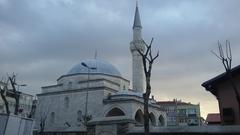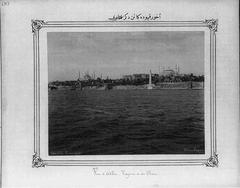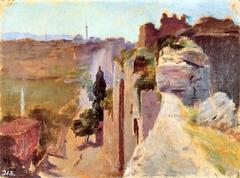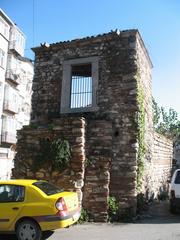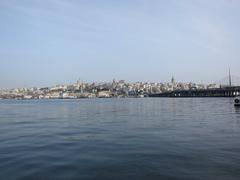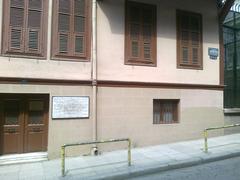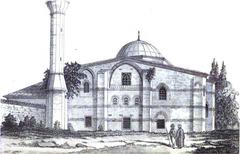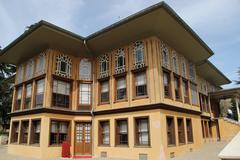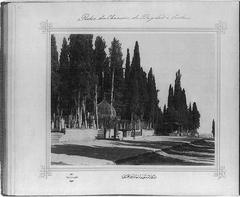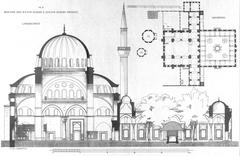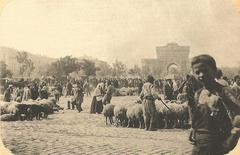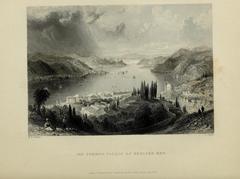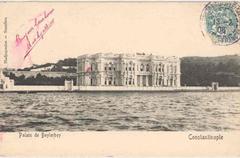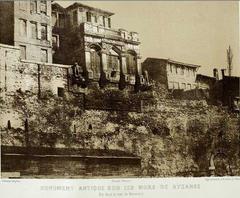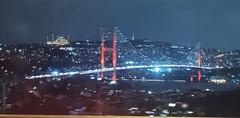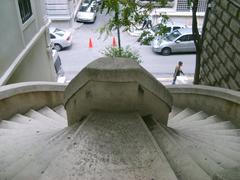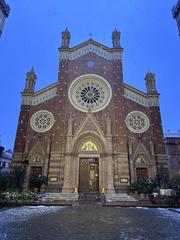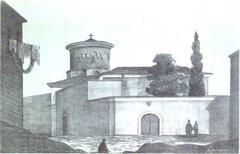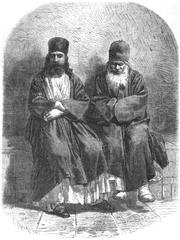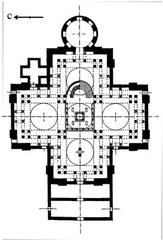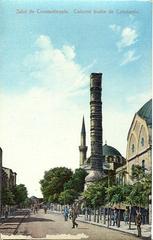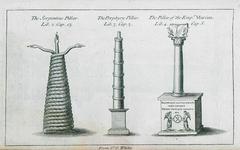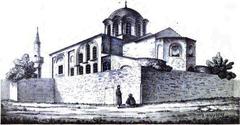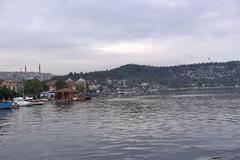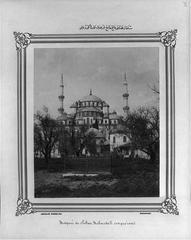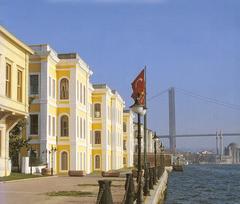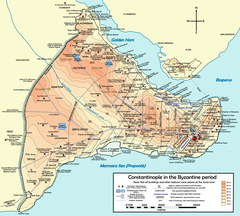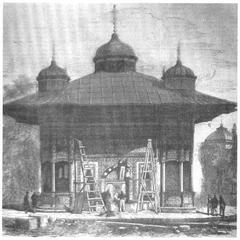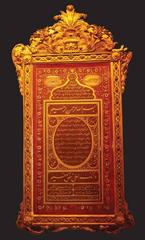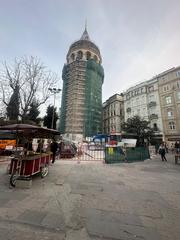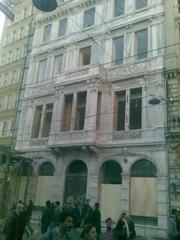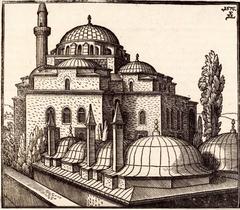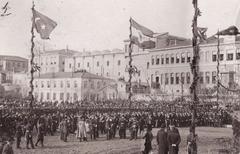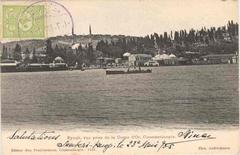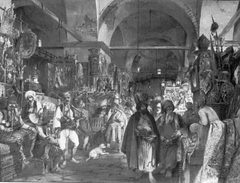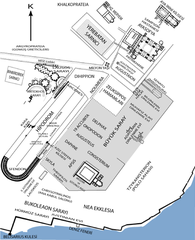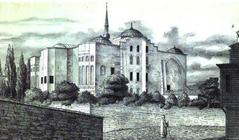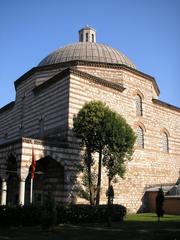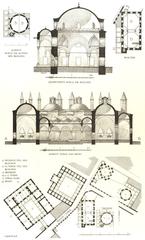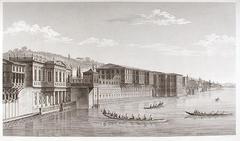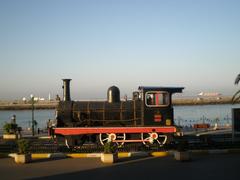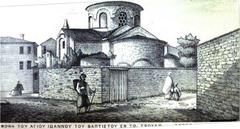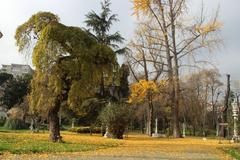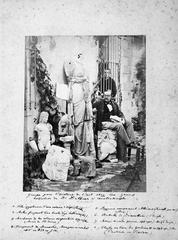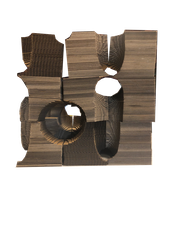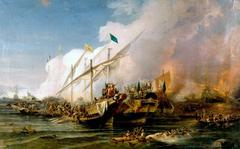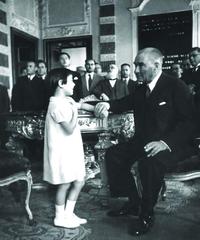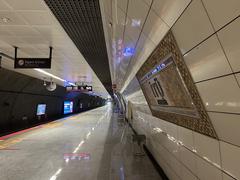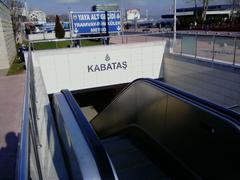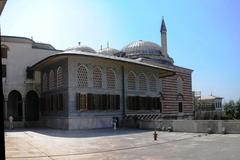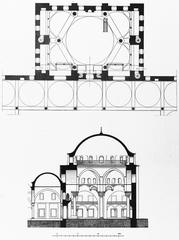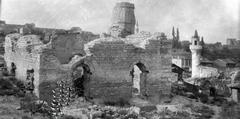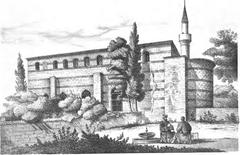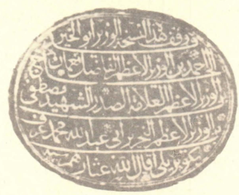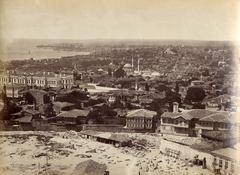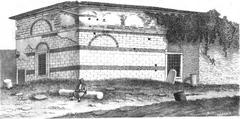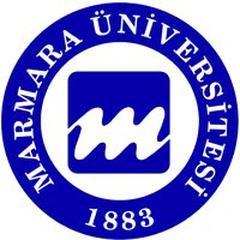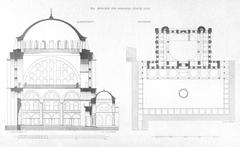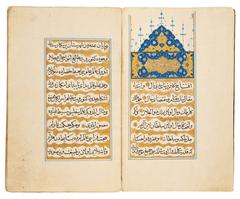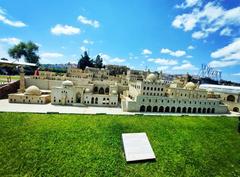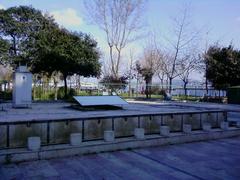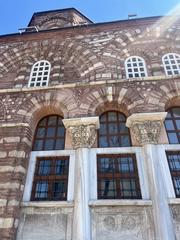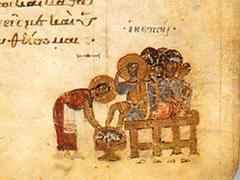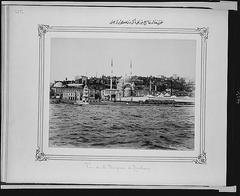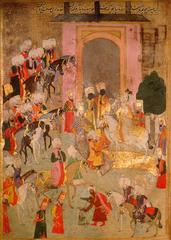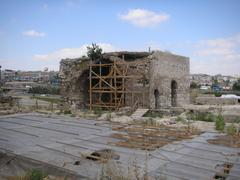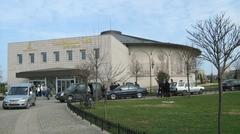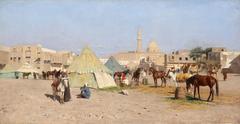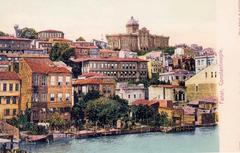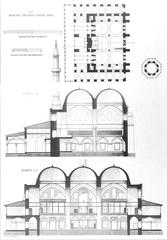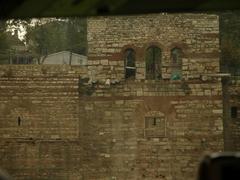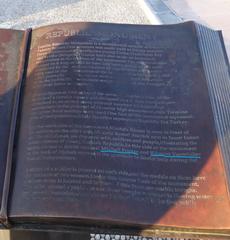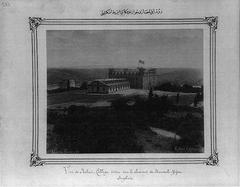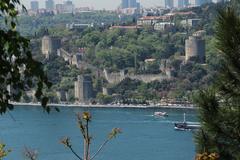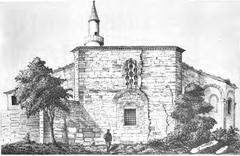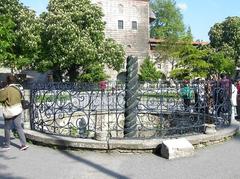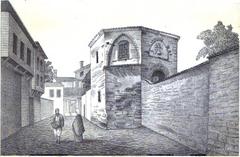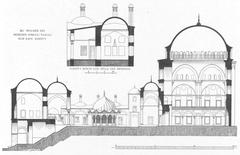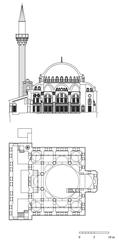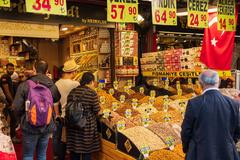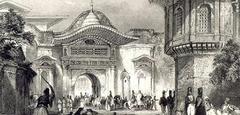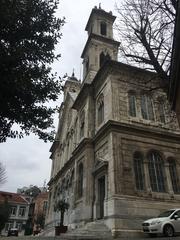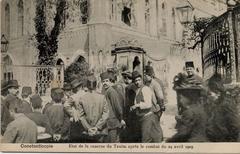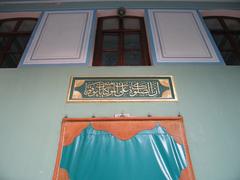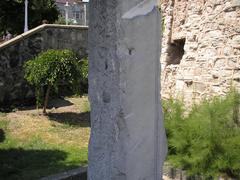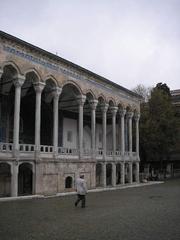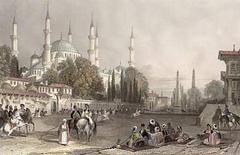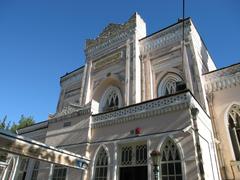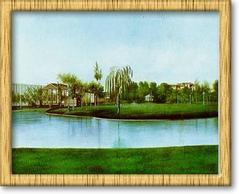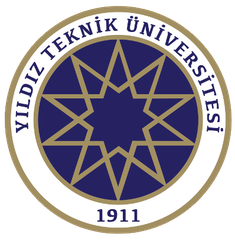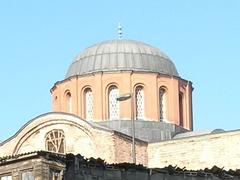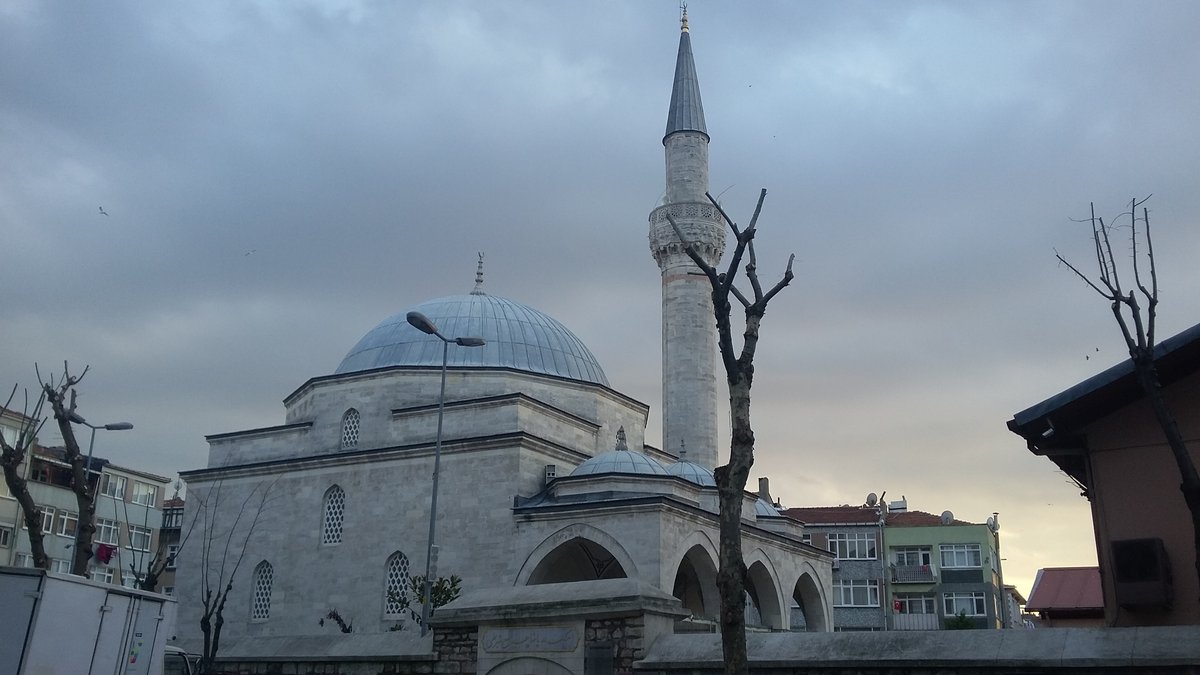
İskender Pasha Mosque: Visiting Hours, Tickets, and Historical Significance in Fatih, Istanbul
Date: 14/06/2025
Introduction
The İskender Pasha Mosque, located in Istanbul’s historic Fatih district, is a distinguished symbol of early Ottoman architecture and spiritual heritage. Commissioned in the early 16th century by İskender Pasha, an influential vizier during Sultan Bayezid II’s reign, the mosque offers visitors an authentic perspective on Istanbul’s transformation after the Ottoman conquest. Unlike the city’s grand imperial mosques, İskender Pasha Mosque provides an intimate glimpse into neighborhood religious culture and the evolution of urban Ottoman society. This comprehensive guide covers the mosque’s history, architectural highlights, religious and cultural significance, and essential visitor information, including opening hours, ticketing, accessibility, and travel tips (istanbulepass.com; nomadicniko.com; Wikipedia).
Table of Contents
- Historical Context and Foundation
- Architectural Features and Restoration
- Religious and Cultural Significance
- Visiting Hours, Tickets, and Accessibility
- Visitor Etiquette and Facilities
- Unique Features and Points of Interest
- Nearby Attractions
- Frequently Asked Questions (FAQs)
- Conclusion
- References and Further Reading
Historical Context and Foundation
The İskender Pasha Mosque was completed around 1505, following the Ottoman conquest of Constantinople. Its founder, İskender Pasha, was a prominent vizier and statesman who contributed to the Islamization and urbanization of the newly conquered city. The mosque is named after him, reflecting the custom of high-ranking officials commissioning religious buildings as acts of both piety and legacy (Wikipedia). The original mosque was part of a külliye (complex) that included a madrasa, tomb, and fountain, illustrating the Ottoman approach to integrating worship, education, and charity within a community hub.
Architectural Features and Restoration
Exterior
İskender Pasha Mosque is a classic example of early Ottoman religious architecture, characterized by its modest scale, harmonious proportions, and elegant use of stone and brick. The mosque stands within a tranquil courtyard (avlu), surrounded by trees and bordered by low walls, creating an oasis amid the urban activity of Fatih. The main entrance features an arched portal adorned with calligraphic inscriptions, while the façade displays symmetrical rows of windows with alternating stone and brick courses (archiqoo.com).
A distinctive slender minaret rises from one corner of the courtyard, constructed from finely dressed stone, with a single balcony supported by muqarnas elements. The minaret serves as both a visual landmark and the platform for the call to prayer.
Interior
The prayer hall is a nearly square space covered by a central dome, a hallmark of Ottoman mosque design. The interior features painted floral and geometric motifs on the dome, a finely crafted marble mihrab (prayer niche), and a wooden minbar (pulpit) with intricate geometric patterns. Multiple tiers of windows allow natural light to illuminate the space, while hanging chandeliers and lanterns provide additional ambiance.
Restoration
Over the centuries, the mosque has undergone significant restoration, particularly after earthquakes and fires. Notable additions include the 19th-century muvakkithane (timekeeper’s room), reflecting the importance of precise prayer times in Ottoman society. The mosque’s mausoleum, unusually located on the north side, and additions such as the madrasa and auxiliary buildings, mark its transformation into a small social complex (We Love Istanbul).
Religious and Cultural Significance
İskender Pasha Mosque is deeply woven into the fabric of Istanbul’s religious and social life. It has served generations as a neighborhood mosque, providing daily prayers, religious education, and community services. Its connection to the Naqshbandi Sufi order, notably the İskenderpaşa Jamia, further enhances its cultural resonance. Under the leadership of Imam Mehmed Zahid Kotku in the 20th century, the mosque became a hub for Sufi instruction and spiritual gatherings (Wikipedia: Community of İskenderpaşa). The mosque’s influence extends into Turkish political and intellectual life, with several notable political leaders associated with its community.
Visiting Hours, Tickets, and Accessibility
Visiting Hours
The mosque is open daily from 9:00 AM to 6:00 PM for visitors. During the five daily prayers, especially at midday and on Fridays, non-Muslims are asked to wait outside. Prayer times vary seasonally, so visitors should check local schedules (Fodor’s Travel).
Tickets and Entry Fees
There is no entrance fee. Donations are welcome to support the mosque’s maintenance and preservation.
Accessibility
The mosque is accessible by public transportation, including trams and buses serving the Fatih district. While the main prayer hall and courtyard are generally accessible, some areas have steps or uneven surfaces due to the building’s historic nature. Visitors with specific mobility needs are advised to contact mosque staff in advance for assistance.
Visitor Etiquette and Facilities
- Dress Code: Modest clothing is required. Women should cover their hair, arms, and legs; men should wear long trousers and sleeved shirts. Scarves are often provided at the entrance.
- Shoes: Remove shoes before entering the prayer hall. Shelving is provided, but carrying a small bag for your shoes is customary.
- Photography: Allowed in most areas but should be discreet. Avoid flash photography and photographing worshippers during prayers.
- Restrooms: Facilities are available, sometimes for a nominal fee. Carry personal supplies such as tissues and hand sanitizer.
- Guided Tours: Tours can be arranged through local tour operators or the mosque administration. English-speaking guides are available upon request.
Unique Features and Points of Interest
- Unusual Mausoleum Placement: The mausoleum of İskender Pasha and his son is located on the north side, a rare feature in Ottoman mosque design (We Love Istanbul).
- Muvakkithane: The 19th-century timekeeper’s room highlights the community’s emphasis on accurate prayer times.
- Sufi Heritage: The mosque’s association with the Naqshbandi order draws visitors interested in Islamic mysticism and Sufi culture.
- Community Life: The mosque’s courtyard, shaded by ancient trees, serves as a communal gathering space and reflects the mosque’s enduring role as a neighborhood hub.
Nearby Attractions
İskender Pasha Mosque is ideally located for exploring other landmarks in Fatih:
- Fatih Mosque: A grand imperial mosque with extensive religious and educational facilities (worldbestmosques.com).
- Grand Bazaar: One of the world’s oldest and largest covered markets.
- Spice Bazaar: A vibrant market specializing in spices and local delicacies.
These sites, within walking distance, make for an enriching historical and cultural itinerary.
Frequently Asked Questions (FAQs)
Q: What are the visiting hours?
A: The mosque is open daily from 9:00 AM to 6:00 PM, except during prayer times.
Q: Is there an entrance fee?
A: No, entry is free. Donations are appreciated.
Q: Are guided tours available?
A: Yes, they can be arranged through local operators or the mosque.
Q: Is the mosque wheelchair accessible?
A: The main areas are accessible, but some surfaces may be uneven. Contact the mosque for assistance.
Q: What is the dress code?
A: Modest clothing is required; women should cover their hair.
Q: Can I take photographs?
A: Yes, but avoid flash and photographing worshippers during prayers.
Conclusion
The İskender Pasha Mosque offers a unique window into Istanbul’s Ottoman past, blending architectural beauty, vibrant religious life, and community engagement. Its free admission, convenient location, and welcoming atmosphere make it a must-visit for travelers seeking to explore Istanbul’s rich historical tapestry. Plan your visit with respect for local customs, take time to appreciate the mosque’s serene ambiance, and explore nearby attractions for a comprehensive experience of the city’s heritage.
For more information and personalized travel tips, download the Audiala app and follow updates on social media. Experience the enduring legacy of İskender Pasha Mosque as part of your journey through Istanbul.
References and Further Reading
- Istanbul E-pass: Historical Mosques in Istanbul
- Nomadic Niko: Sultanahmet
- Wikipedia: İskender Pasha Mosque, Fatih
- Wikipedia: Community of İskenderpaşa
- We Love Istanbul: İskender Pasha Mosque
- Fodor’s Travel: What to Know Before Visiting Istanbul’s Mosques
- Nomadic Niko: Fatih Mosque
- Thebest Istanbul – 9 Most Beautiful Mosques in Istanbul
- Istanbul Tourist Pass – Visiting Mosques: Dos and Don’ts
- worldbestmosques.com: Fatih Mosque
- archiqoo.com: İskender Pasha Mosque, Fatih
